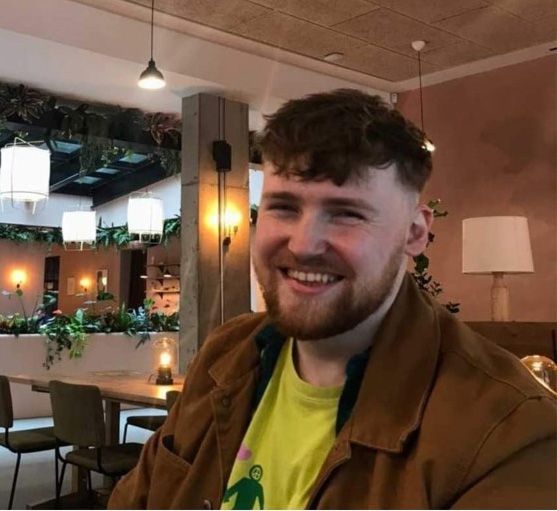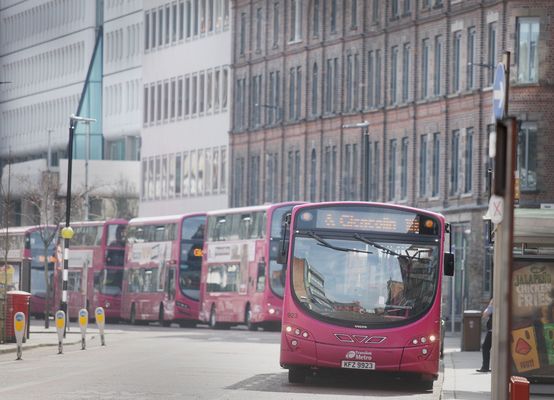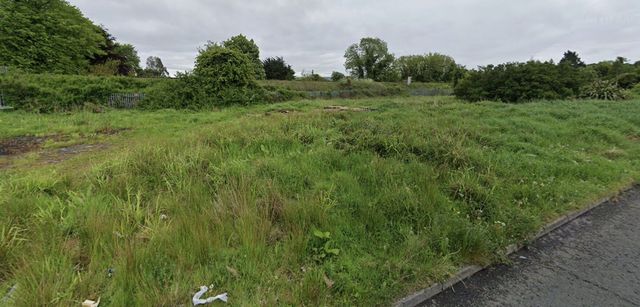The Instagram account of a history student who hails from a unionist background is causing a stir in the Irish unity debate.
Tanistry boasts over 22,500 followers and is the brainchild of history student Andrew Clarke who grew up in a strong unionist community.
Andrew says he began Tanistry after discovering that the Irish history he was learning at university was wholly different from what he experienced at school.
“I didn’t have a clue largely until I got older,” he said. “I grew up pretty much defaulted to one outlook as a lot of people do here. My family are loosely unionist with some loyalists so I grew up without any real awareness of anything else. I remember going to cross-community trips in school but they were presented as if we were almost going into another country. It was a really weird experience.”
Andrew says he was taught was an Anglicised version of history in school, focusing on topics such as the First and Second World Wars, the Norman invasion of England.
“I believe the approach to history in (state) schools tends to ‘otherise’ anything which isn’t unionism," he explains. "You learn about the English castles, Henry VIII, motte-and-baileys etc but I can’t recall ever learning once anything about Gaelic Ireland even though where we live, Ulster, is so integral to the history of Gaelic Ireland.
“I recall forgetting my pound for the Poppy Appeal one year and as I wasn’t wearing one I wasn’t allowed into the assembly which featured the cadets and was very militaristic. I and a few others had to go into another room and be minded by a member of staff.”
Since starting up Tanistry in 2017 as an outlet to discuss Irish history, Andrew has seen the page grow massively. Posts include ‘Brehon Law in Ireland: The Law of the Gaels’ and modern topics such as ‘The Irish Border: Who Put That There?’.
Largely self-taught, Andrew is now in his second year of a history degree. He firmly believes that the way in which history is taught in the North of Ireland needs to be revolutionised.
“My history lessons were very one-sided. I had heard about De Valera, but absolutely nothing about Michael Collins or the Anglo-Irish Treaty. From the way history was taught for a long time I believed that Northern Ireland had existed from before the First World War. When I began looking into what actually happened it was a shock and also very frustrating, because I’d always loved history, but it felt like I’d been spun a load of nonsense. None of it seemed right with the way it’d been taught.”
Andrew discovered that many visitors to his site shared his disappointment in the teaching of Irish history. Like him they were rejecting Ulster unionism and, like their nationalist neighbours, felt Irish.
“I’ve met and spoken with so many people who’ve had a similar sort of journey in rejecting the insular nature of Ulster unionism. It’s gone from me learning Irish history, to helping people from an Ulster Protestant background learn Irish history, to now being more focused on, let’s all learn Irish history.”
However, some posts have sparked a different reaction: Andrew received threats in regards to posts condemning the 11 July bonfires and 12 July parades.
Andrew would like to see the DUP to lose their primacy in Northern Irish politics, believing it would break up the status quo and lead to real change.
“The first thing I’d like to see is the DUP no longer holding the position of First Minister," he adds. "I think it would help a lot of unionists and unionist politicians deal with the fact that we do have a new Northern Ireland and a nationalist majority is nothing to be frightened about."
Andrew believes that a border poll will happen and will be successful due to an ageing unionist population and "unionism doing absolutely nothing to revitalise itself".
“Nationalism attracts far more young people and with demographic shifts that will become increasingly more the case. More and more people are identifying as Irish and there is no unionist party that is completely welcoming to Irish people or culture. The UUP have tried, but they’ll then align themselves with the DUP and PUP.
“There isn’t a unionist party that doesn’t every other week say something or do something that is completely hostile to Irish people, Irish culture, the Irish language or the Republic of Ireland. A lot of people I know from unionist backgrounds are far more receptive to the idea of a united Ireland but they are concerned about economic issues. However if the (Unity) plan was that we’d be better off, they’d take it.”







